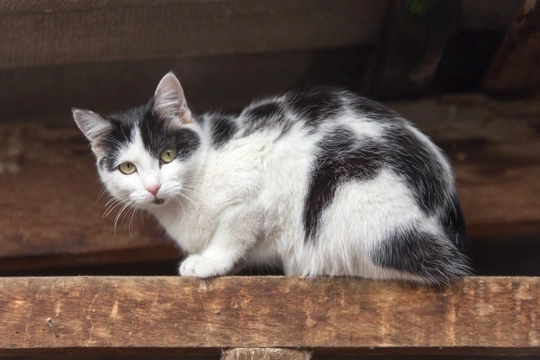
Keeping an FIV-positive cat (or one with another immune disorder) healthy
Finding out that your cat is FIV positive or suffers from another immune-mediated illness such as feline leukaemia or panleukopenia can of course be very upsetting and worrying, and will mean that your cat may live for a shorter than average lifespan. However, such conditions do not have to mean a death sentence for the cat in question, and in fact many cats with such conditions lead long and happy lives, with a near-to-normal lifespan with proper care.
Taking care of a cat with FIV or another immune disorder requires a little bit more effort than caring for a regular healthy cat, and there is no getting away from this fact. Some lifestyle changes for the cat will be necessary after diagnosis too, and these are sometimes challenging-such as if a cat that has previously been allowed out must now be kept indoors.
If your cat has been diagnosed with FIV or another immune-mediated disorder, you will naturally want to do everything that you can to keep your cat healthy and well, without compromising their quality of life. Fortunately, there are lots of different ways to do this-and in this article, we will share some tips and advice on how to go about it.
Read on to learn about keeping an FIV-positive cat (or one with another immune disorder) healthy and well.
Immune conditions and their risks
Every immune disorder will manifest in different ways and have its own specific symptoms and progressions, but the thing that they all have in common is that they affect the immune system of the cat, which comes with its own range of implications and concerns. An underlying condition that compromises the immune system can have a range of different negative effects on your cat-such as making them more prone to picking up bugs and illnesses, and more trouble fighting them off.
This is why in the case of many immune-mediated conditions in both cats and people, the ultimate cause of death is just as likely to be a secondary complication of the condition as it is to be the condition itself.
Ultimately, this is why the day-to-day care and management of a cat with FIV or another immune disorder can make such a difference to the cat’s potential lifespan and health, and how you can take positive steps to contribute to this.
Keeping your cat healthy and reducing potential risks
A good level of risk awareness is important when caring for an FIV positive cat, and this is something that your vet should explain to you and be able to offer ongoing support with. The tips outlined below are designed to reduce these potential risk factors and reduce the chances of your cat coming into contact with something or doing something that may lead to a secondary complication of their condition, such as an infection or other illness that can be hard to shift, and compromise their wellness.
- First of all, a cat with a compromised immune system almost always needs to be kept indoors only, without free access to the outside world. The reasoning for this is twofold; to prevent your cat from passing the condition on to other cats, and to prevent your cat from catching an illness from a healthy cat that may for them prove life threatening.
If you can provide an enclosed run or other means of letting your cat go out into a set, enclosed territory this is fine-but be aware of the additional risks too.
- An immune compromised cat should be something of a frequent flier with your vet-even when healthy, they should get six-monthly check-ups to ensure that they are well, and to spot any early indications of a growing problem. Your cat should also remain up to date with all of their vaccines, assuming that your vet agrees that this is not a potential problem for your cat.
- Also, keep up your cat’s flea treatment regime, as fleas can spread illness as well as being an irritation!
- If you spot any changes in your cats condition or potential signs of illness, take them to the vet immediately-the wait and see option, which is often fine in healthy cats, is a recipe for disaster in those with FIV.
- Feed a good quality diet, potentially a veterinary diet or grain-free food, in order to support your cat’s immune system and health as much as possible. Also, be speculative about treats and scraps that your cat is offered-raw meat or seafood can carry bugs and parasites that will affect your cat.
- Every time you come in from outside, wash your hands immediately-in case you have touched another animal or come into contact with something that could affect your own cat.
- Finally, try to keep your home environment calm and stress free-yourself included-as immune-mediated conditions can worsen with stress, which will do neither you nor your cat any good!



